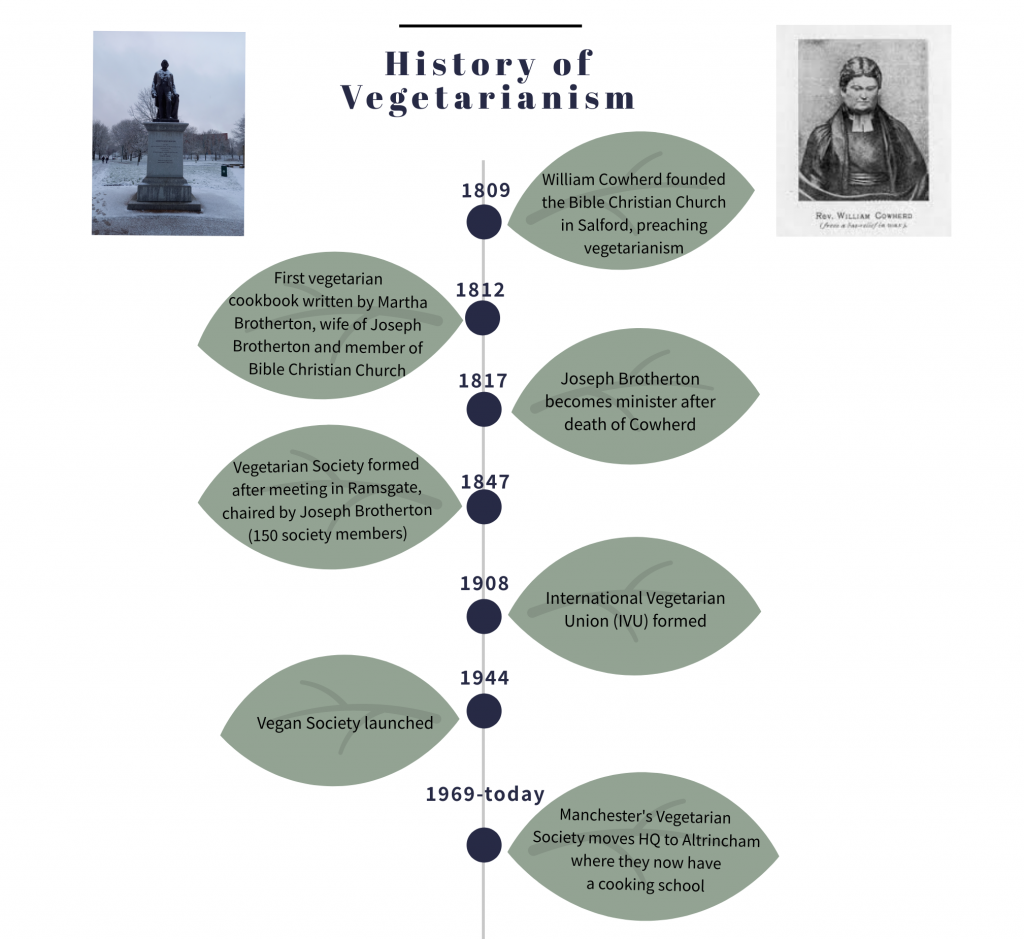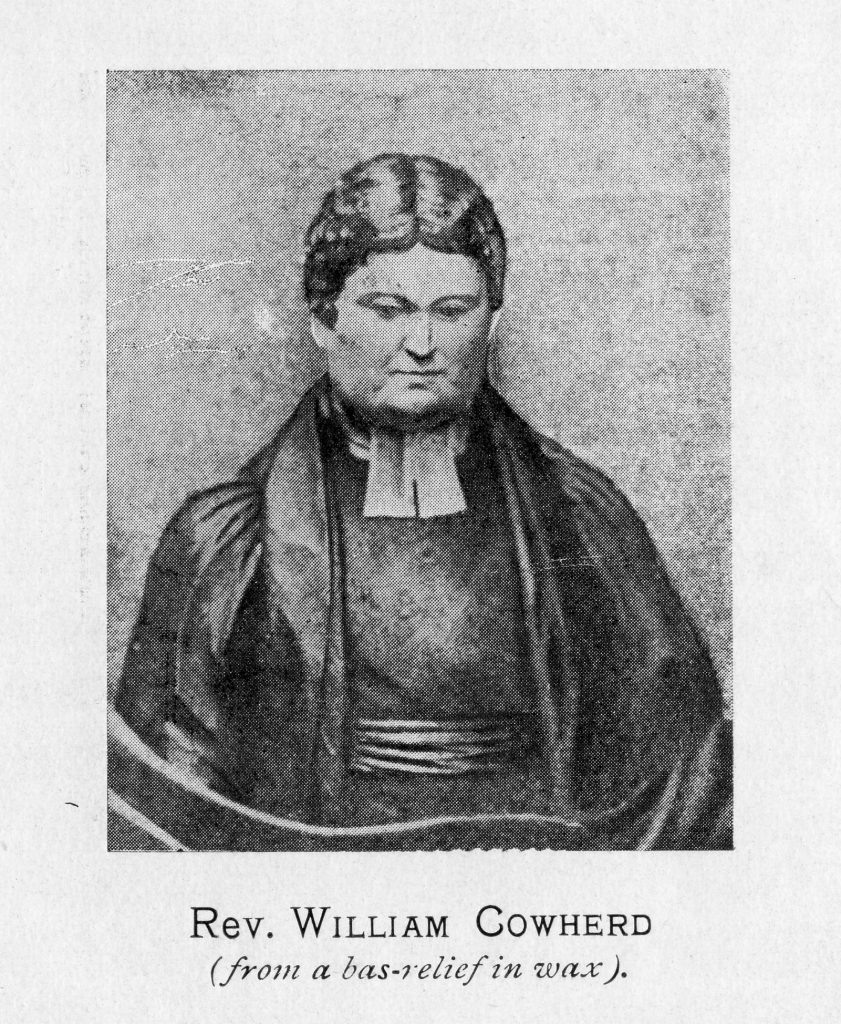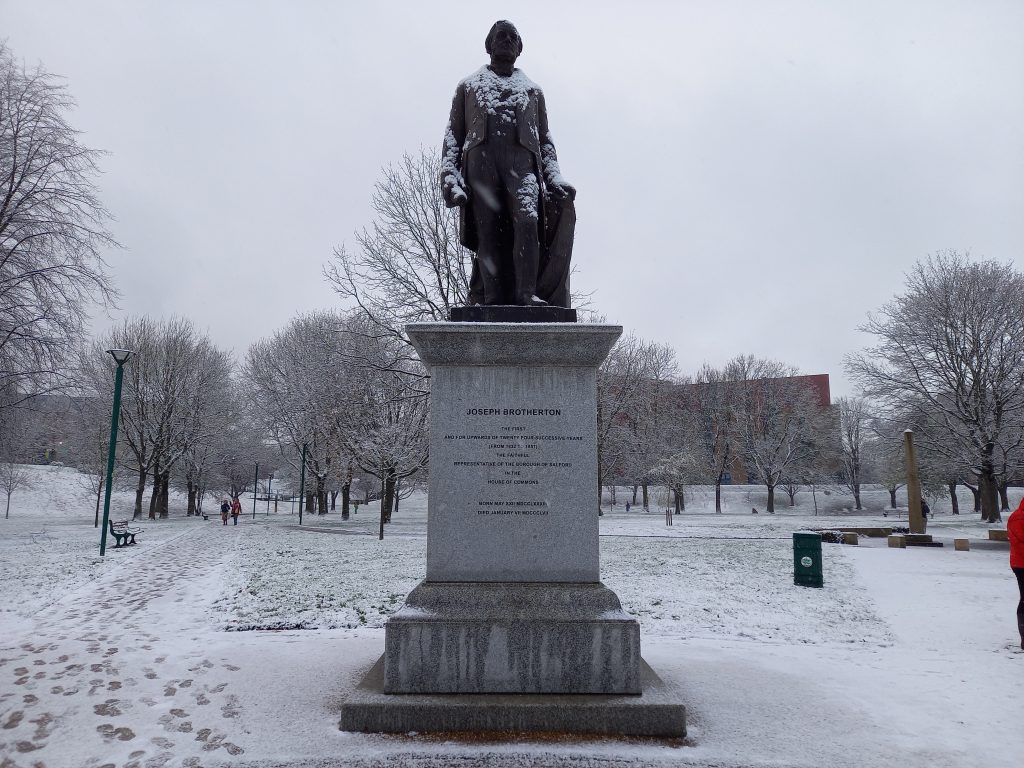Vegetarian and vegan diets are becoming the norm since an increased awareness of climate change and the meat industry.
But did you know that Salford has its own historical vegetarian roots?

In fact, vegetarianism dates way back to the early 19th Century, with a Salford Minister called William Cowherd.
Born in Carnforth, North Lancashire, Cowherd moved to Salford to preach a new branch of Christianity based on the teachings of Emmanuel Swedenborg. In 1809 his chapel on King Street, known as the New Bible Christian Church, preached abstinence from meat, alcohol and tobacco.

At this time, the congregation were mocked for their vegetarian diets, and they were commonly referred to as the ‘Beefsteak Chapel’.
Chief Executive of the Vegetarian Society, Richard McIlwain said: “Various magazines at the time like punch would often take the mickey out of people who were vegetarian. They were scoffed at.”
In 1817, future Salford Member of Parliament Joseph Brotherton took over the ministerial role, following Cowherd’s death. His wife, Martha Brotherton wrote the first vegetarian cookbook in 1812.
Thirty years later, on September 30th 1847, Brotherton met with other vegetarians in Ramsgate and chaired the first ever meeting of the Vegetarian Society.
As a politician, Joseph Brotherton could share his ideas with a wider audience, promoting health and anti-animal cruelty through his meat-free soup kitchens.
Richard McIlwain said: “It was not only to offer food to the poor, but to offer good quality food to the poor, which was vegetable soups packed with barley and pulses.
“It probably would have created more variety than the average working-class Victorian was used to.”
Joseph Brotherton died in 1857, aged 73 and Martha Brotherton died in 1861, aged 78years. They lived long lives given that the average life expectancy was around 50 at the time.
Their graves can be found in Weaste Cemetery, Salford.
So how has vegetarianism grown since the Victorian era?
Mr McIlwain said: “There’s a lot of ripples that come from that early William Cowherd and Joseph Brotherton church that stand the test of time today.”
Now the Vegetarian Society, based in Altrincham, provides cooking classes for schools and individuals and achieved political campaigning success through their National Vegetarian Week in May.
Numbers have grown since the 150 members in the 19th Century. Latest statistics estimate that 2-3% of people in the UK are vegetarian or vegan.
Mr McIlwain said: “Many more people now are thinking about vegetarian and vegan diets, eating more plants because they see the benefits not just in helping animals but also in terms of carbon as well.”
Afterall, nearly 15% of anthropogenic CO2 emissions are caused by the meat industry.
As Richard McIlwain said: “You can live a perfectly healthy life with great tasting food that’s easily accessed without the need to kill animals.”
















Recent Comments